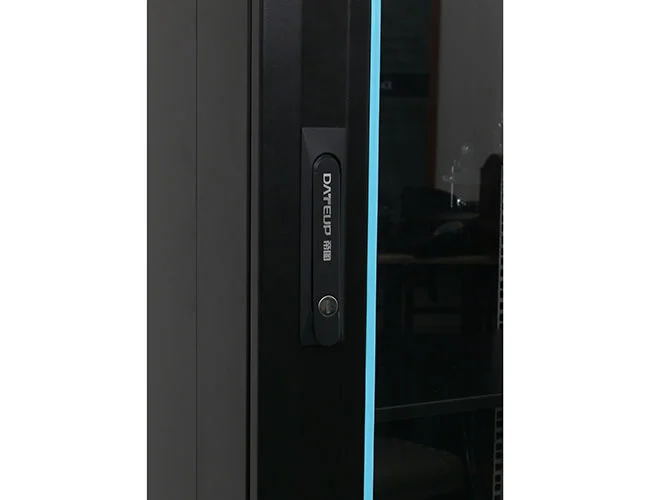News
Site Editor
 Site
https://leonetworkgroup.usa18.wondercdn.com/uploads/image/5fe152faa587d.png
Punching down a network Ethernet patch panel is an essential task in the installation process. A patch panel is a device used to organize and manage the network cables in an efficient and tidy manner. The main purpose of the patch panel is to provide a central location to terminate all of the network cables coming from different locations within a building, typically at the server room or data cen
Site
https://leonetworkgroup.usa18.wondercdn.com/uploads/image/5fe152faa587d.png
Punching down a network Ethernet patch panel is an essential task in the installation process. A patch panel is a device used to organize and manage the network cables in an efficient and tidy manner. The main purpose of the patch panel is to provide a central location to terminate all of the network cables coming from different locations within a building, typically at the server room or data cen
How To Punch Down A Network Ethernet Patch Panel
Views: 599
Author: Site Editor
Publish Time: 2023-07-10
Origin: Site
Punching down a network Ethernet patch panel is an essential task in the installation process. A patch panel is a device used to organize and manage the network cables in an efficient and tidy manner. The main purpose of the patch panel is to provide a central location to terminate all of the network cables coming from different locations within a building, typically at the server room or data center. It is important to follow the standard procedure while punching down the cables to avoid any signal loss or interference. In this article, we will discuss the steps to punch down a network Ethernet patch panel.
Step 1: Gather the Required Tools
Before starting the punching down process, ensure that you have all the necessary tools to complete the task. The important tools include a patch panel, cable tester, cable stripper, punch-down tool, and network cables.
Step 2: Identify the Correct Port
Before punching down the Ethernet cable, make sure that you have identified the correct port on the patch panel. A patch panel has several ports that are labeled for identification. Ensure that you choose the correct port according to your cable requirements.
Step 3: Strip the Cable
After identifying the correct port, strip off the outer jacket of the Ethernet cable to expose the inner wires. Use the cable stripper to remove approximately one inch of the outer jacket from the end of the cable.
Step 4: Arrange the Wires
Arrange the inner wires of the Ethernet cable according to the TIA/EIA wiring standard. The standard wiring arrangement for Ethernet is:
- Pin1 (white/orange)
- Pin2 (orange)
- Pin3 (white/green)
- Pin4 (blue)
- Pin5 (white/blue)
- Pin6 (green)
- Pin7 (white/brown)
- Pin8 (brown)
Step 5: Insert the Cable into the Port
After arranging the wires, insert the cable into the patch panel port. Insert the cable until you hear a click indicating that the cable is locked in place.
Step 6: Punch-Down the Cable
Use a punch-down tool to terminate the cable by pressing it down on the patch panel contacts. The punch-down tool helps to create a secure and stable connection between the wire and the patch panel.
Step 7: Test the Connection
After punching down all the Ethernet cables, use a cable tester to ensure that the connections are properly terminated and working. The cable tester will identify any issues and help you troubleshoot the problem.
Conclusion
Punching down a network Ethernet patch panel might seem daunting, but it is an essential task in any network installation. By following the correct procedure, you can ensure a secure and stable connection between your cables and the patch panel. Properly organized cables also make troubleshooting any issues much easier in the future. Following these steps will help you to install and terminate all your Ethernet cables successfully.
If you want to know more about industrial network cabinet,china fiber optic splice closure,china fiber optic distribution box,please consult the fiber optic splice closure factory









